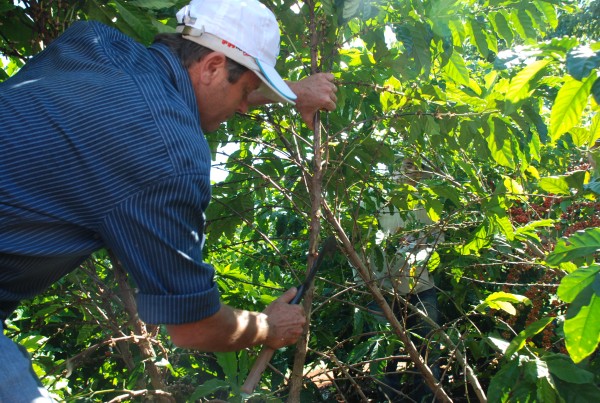Small coffee farmers of the agricultural chain perform a role that is very important in Brazil, so important that the system is a reference for other countries. According to 2015 data from the Federal Government of Brazil, small growers produce about 70% of the food consumed in the country and their farms employ 80% of the rural labor force. This shows how much the agricultural activity of small and medium-sized farmers is strategic to feed the population.

Regarding the coffee, 80% of the production comes from family farming and, according to data from the Ministry of Agriculture, the coffee chain employs over eight million people, consolidating coffee production as an important source of income.
In a world in which population grows at a fast pace and many people still don’t have access to good quality food, the role of small farmers is essential to ensure food safety to the Brazilian population.
According to data from ICO, world coffee consumption in 2015 was 2.24% higher than the volume produced during the same period in the previous year, and the trend is that this number will continue to grow. Production must adapt itself to meet the growing demand, but for that to happen, we have to adopt technologies and good agricultural practices to increase productivity without harming the environment. At the same time, when the situation is challenging, it is also when new opportunities arise.
It is no news that Brazil produces differentiated coffees for their production quality and sustainability. There is a huge variety of specialty coffees, since we have various climates, types of soil and altitudes in the seven largest coffee producing states. Studies show that not only developed countries are large consumers of specialty coffees, but also Brazilians are increasingly more interested in such type of coffees. The differentiation, driven by the demands of foreign markets, adds value to the final product and creates new business opportunities, which make the specialty coffees market very promising.
Brazil is doing its part: according to IPEP Cecafé data (domestic price share in the FOB amount of Arabica coffee Brazil exports), Brazilian farmers receive the largest part of the established price for their product, about 75% registered during the last 12 months. Additionally, there are financing programs for growers in Brazil, offered by Funcafé and the Ministry of Agrarian Development, which aim at providing credit so that coffee farmers can continue their work. There are also loan modalities to finance equipment. Mechanization is another point that deserves being mentioned, since it reduces costs and increases crop yields. Initially, it seems like a large investment; however, it is estimated that the return of this investment is seen in four years in average. In the case of farmers who have less capital, they can even opt to leasing equipment.
There are various options to the adaptation of farmers, and the development of researches for sustainable production is crucial. However, no initiative can meet its role properly if it is not at the small farmer’s reach. For that reason, the coffee exporting industry, together with the Coffee Global Platform, added to Informed Producer Program the Coffee Sustainability Curriculum. The program includes environmental and property management, as well as cultivation techniques to increase yield and ensure perennial production.
It is extremely important that farmers have access to information in order to manage better their farms, to reduce production costs and increase crop yield, thus improving their income. To earn their livelihood in a satisfactory way, he leaves the legacy of the farm’s production to his children, reduces rural exodus and ensures cultivation continuity. Hence, the productivity cycle closes, generating benefits for all those involved in the coffee chain.
Marjorie Miranda – Coordinator of the Social Responsibility and Sustainability Programs of Cecafe.


Leave A Comment